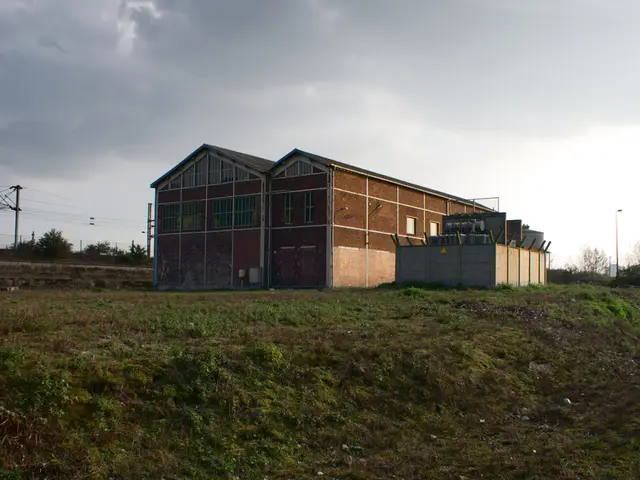With a push for reform, Labour is experiencing a drain of votes from the progressive wing
In the aftermath of Reform UK's triumph in the local elections, the government has announced a significant crackdown on immigration. Amidst this political shift, Labour grapples with not one but two potential threats – a bleed from the right, and a substantial exodus to the left.
A recent poll indicates that around half of those who voted Labour in the 2024 election would not do so again if an election were held tomorrow. This dissatisfaction is particularly pronounced among Labour's leftist supporters, who allege that the party has veered to the right under Keir Starmer, with cuts to welfare and legal migration.
According to the survey, 43% of Labour voters believe the party is trying to appeal to Reform UK voters, a concern that is compounded by Starmer's pledge to lower net migration. The Prime Minister's announcement of plans to curb immigration influx went further than anything the party promised during the election campaign.
This immigration policy announcement was made just two weeks after Labour suffered a net loss of 187 councillors in the May local election. In stark contrast, Reform UK's numbers swelled, with the party netting 677 seats, all the way from a standing start.
While the Starmer administration attempt to stanch the blood from the right, they are also faced with a vacuum for disillusioned Labour voters, resistant to Reform UK's overtures. In fact, a sizeable proportion of Labour's supporters are now undecided, up for grabs.
Ed Hodgson, pollster from More in Common, noted that a record number of people feel that the government is deaf to their concerns. Despite the government's recent decision to reverse the unpopular winter fuel payment cuts, it was criticized for the ten-month delay in implementing the reversal from the policy change announcement. Hodgson opined that poor communication can be more damaging than no communication at all.
Another explanation for Labour's voter loss is that 2024 Labour supporters may not have been genuine, card-carrying Labour voters. Instead, they may have rallied behind Labour as the Tories' strongest opponent at the time.
Where do these disgruntled, disenchanted Labour supporters go? Younger generations seem to be gravitating towards the Green Party, while older groups are opting for the Liberal Democrats. The Lib Dems have reportedly taken the largest bite out of Labour's voter share, with up to 12% defecting to the party.
As the political landscape shifts, the Lib Dems are positioning themselves as an unobjectionable alternative, capitalizing on the disappointments of both the Conservatives and Labour. They plan to solidify their standing in key areas in London by the 2026 local elections.
The Greens, while often overlooked, have also been snagging votes from Labour. They recorded a record high number of seats in the recent local elections, adding 43 to their ranks. However, the Greens face a PR issue, with the majority of people having no opinion on their co-leaders. Carla Denyer and Adrian Ramsay are stepping down, with a leadership contest planned to refresh the party's brand.
Zach Polanski, deputy leader of the Greens, is challenging Ramsay for the leadership. He attributes Labour's loss of voters to a wide range of issues, from welfare cuts to a lack of support for refugees and an inconsistent stance on the situation in Gaza. Polanski believes the Green Party can fill the vacuum created by Labour's missteps, appealing to a wide range of voters from renters in cities seeking rent controls to farmers struggling against corporate capital.
It appears that voters are increasingly amenable to non-mainstream parties, indicative of a trend towards issue-based voting. This shift could potentially disrupt the two-party system that has dominated UK politics for decades. The recent wave of support for Reform UK, the Green Party, and the Liberal Democrats shows that these parties may be benefiting from this inclination to vote against the status quo.
- The shift in politics has led to a re-evaluation of party alignments, with many disgruntled Labour voters considering alternative parties such as the Greens and the Liberal Democrats, particularly given the latter's stance as a seemingly unobjectionable alternative.
- Amidst the changing political landscape, the Green Party, along with the Liberal Democrats, is making strides by capitalizing on increasing voter dissatisfaction with traditional parties, particularly Labour, and their perceived policy inconsistencies on issues like welfare, refugees, and the situation in Gaza.








